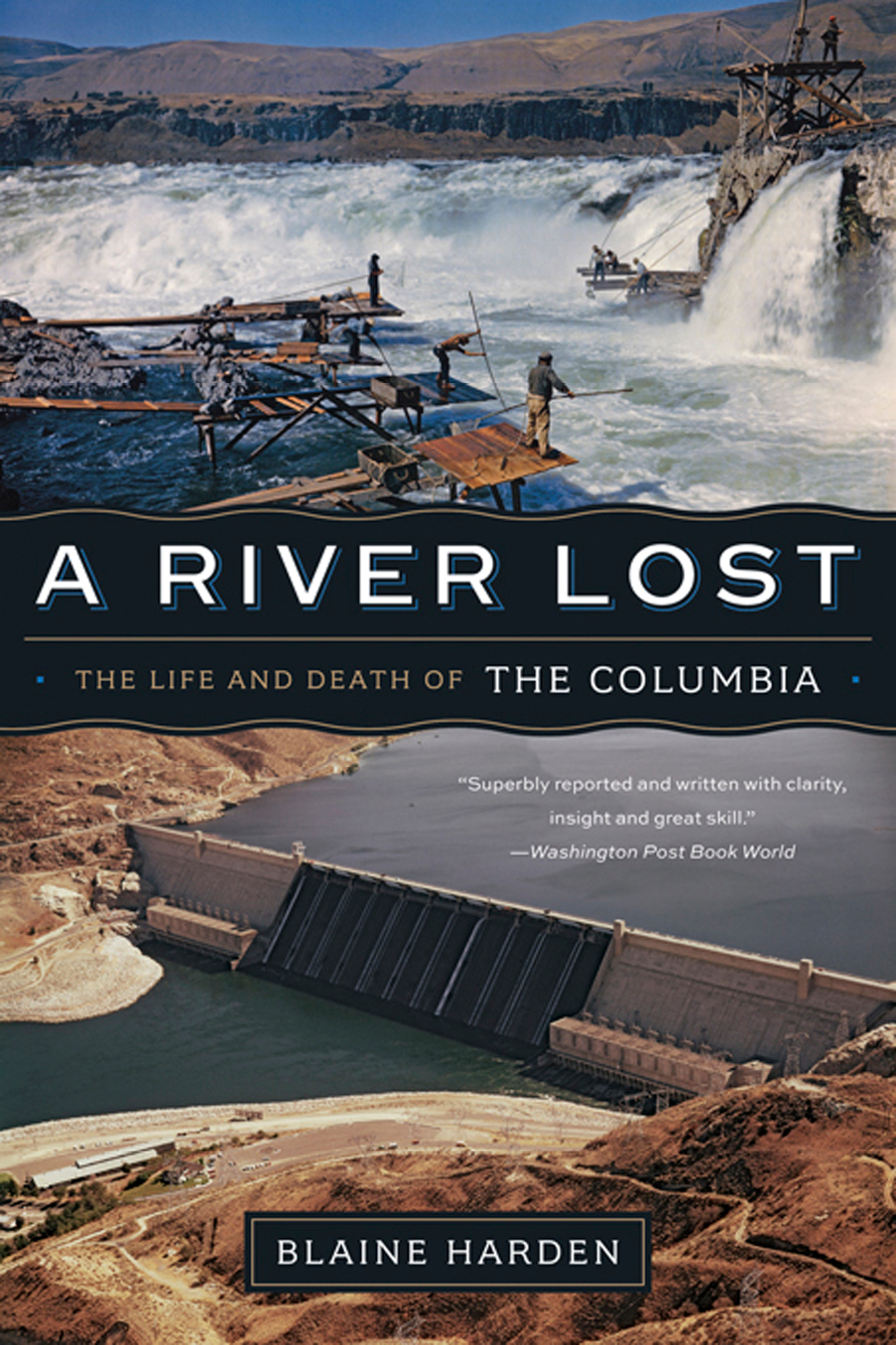

Also by BLAINE HARDEN
Africa:
Dispatches from a Fragile Continent
Escape from Camp 14:
One Mans Remarkable Odyssey from North Korea to Freedom in the West
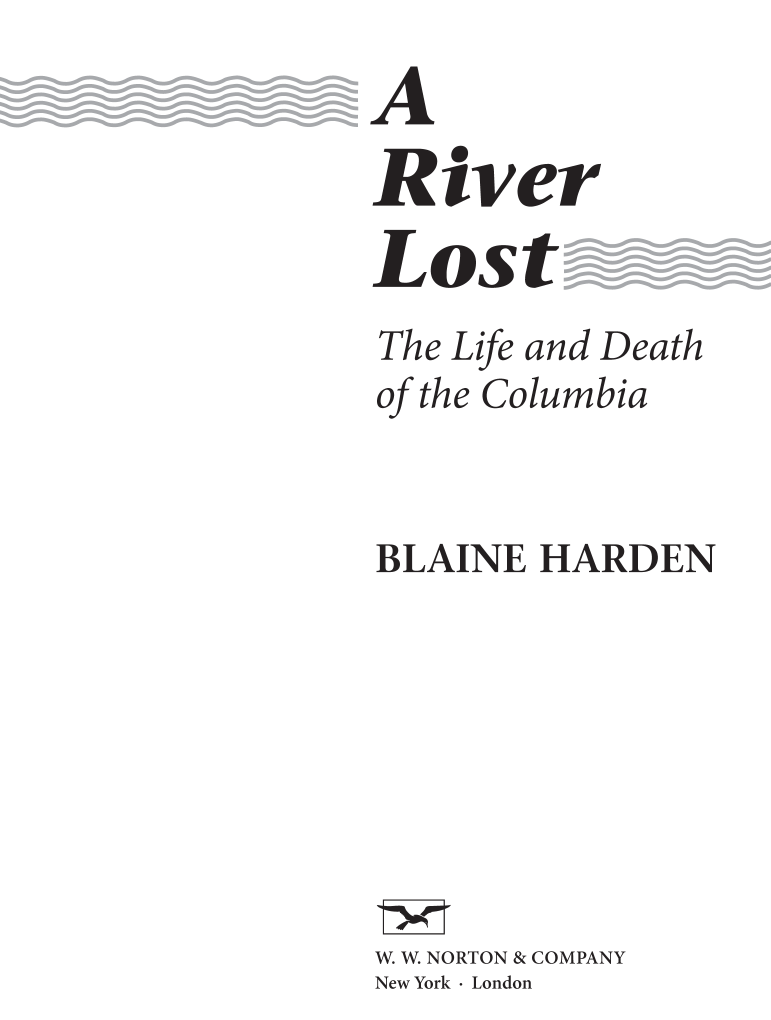
For Lucinda and Arno
 Contents
Contents
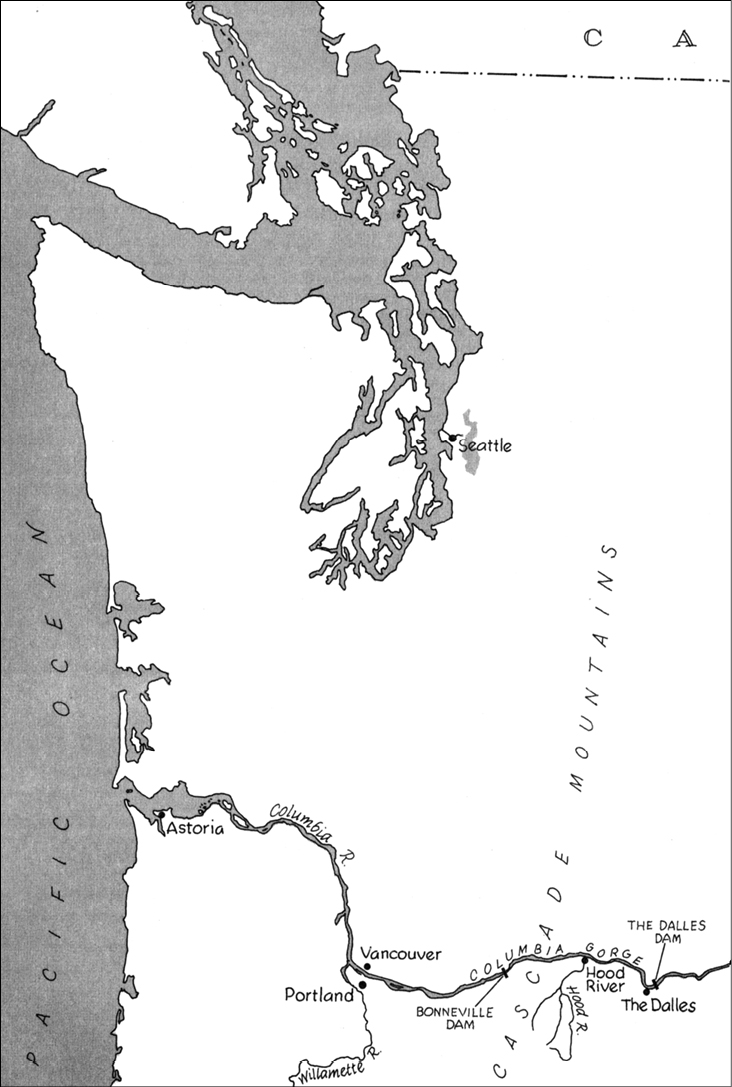
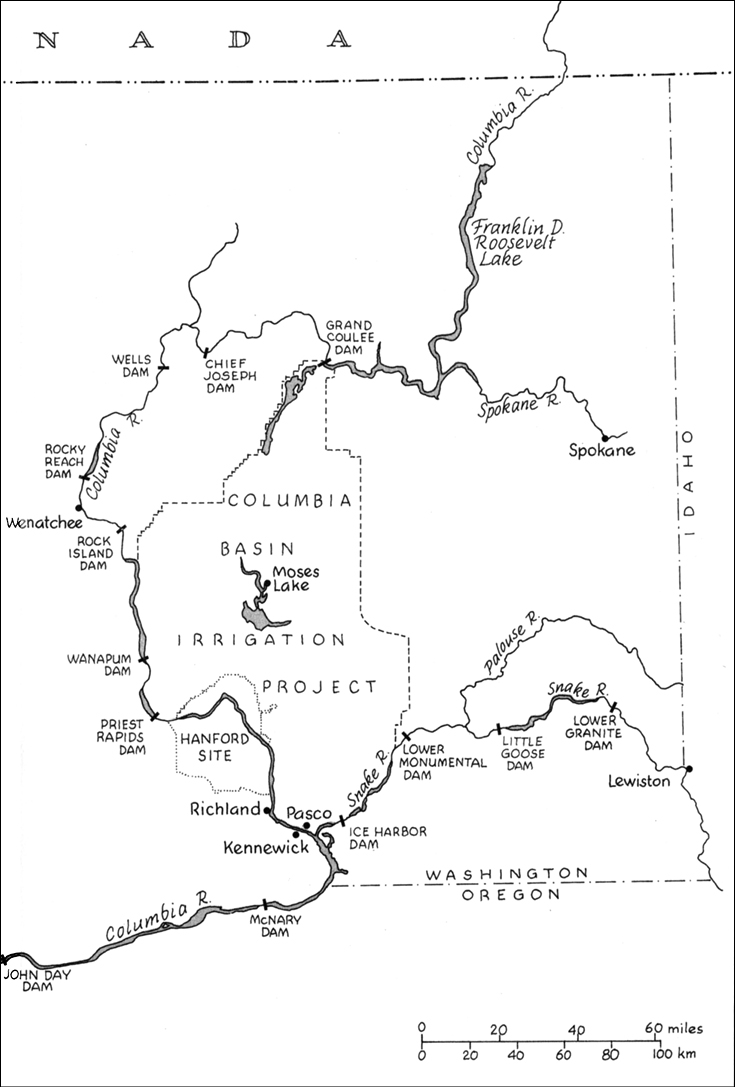
 Preface to the Revised Edition
Preface to the Revised Edition
H ERACLITUS WARNED that nobody steps into the same river twice. And nobody frets about that warning more than an author revising a book about a river. Still, Heraclitus had it wrong when it comes to the essence of a river like the Columbia. You can step into the same dammed river twice.
The mainstem of the Columbia is plugged by fourteen fat slabs of concrete that, barring a seismic cataclysm, are not going anywhere. The fattest and most famous of them all, Grand Coulee Dam, was the largest structure in North America when my father helped build it in the late 1930s. It got even bigger when I (briefly and ineptly) helped expand it in the 1970s. Far into the future, it is almost certain to remain the largest and most important hydroelectric plant in the United States.
Throttled by concrete, the Columbia has undergone no fundamental change since A River Lost was first published in 1996. The river still doesnt flow; it is still operated on a minute-to-minute schedule, with less spontaneity than the faucet in your kitchen sink.
But the context in which that exceedingly large faucet functions has changed substantially. In the past fifteen years, as the United States has stumbled into an era of climate change, soaring energy prices, debt-crippled government, and global food scarcity, the mechanized Columbia has become more valuableperhaps even more virtuousthan ever before.
With almost no new investment, it continues to produce vast quantities of low-cost electricity, more than half of all the power consumed in the Pacific Northwest. In Washington and Oregon, where environmentalism is a moral imperative and a potent political force, that electricity is more than just an economic blessing. It is increasingly perceived as a social benefit: clean, green, and good for the planet. Its generation does not release the carbon emissions that cause global warming. No other part of America has such a monstrous, renewable, nonpolluting, and highly efficient power source already in operation.
Wind has joined forces with the river in the past decade. Towering wind turbines have been erected by the thousands throughout the Columbia Basin. They cluster where the wind rattles through gorges and valleys carved by the river and its tributaries. High-voltage transmission lines that extend out to remote dams on the Columbia provide a convenient tie-in, allowing wind turbines to plug into and sometimes overwhelm a power grid that has not yet expanded enough to keep up with new wind generation.
When the wind blows, the Northwests need for hydroelectricity declines and the river, in effect, becomes a battery, storing energy (as unspilled water) in reservoirs behind dams. Should the wind wane or demand for power increase, electricity is instantly available from dams. This synergetic marriage of wind and rivertogether with electricity generated by solar plants and electricity saved by conservationhas prompted predictions that over the next two decades there will be enough green power in the Northwest to phase out the use of coal to generate electricity.
A shifting global context has also injected new value into the Columbia Basin Project, the largest all-federal irrigation project in the United States. For nearly six decades, the U.S. Bureau of Reclamation has funneled water from the Columbia into fertile but arid land in eastern Washington. Massively subsidized by taxpayers, the project focused its benefits on a relative handful of farmers and often produced crops that were surplus to the countrys needs. The irrigation scheme never expanded to its planned one million acres because economists determined that it devoured more wealth than it produced. But as climate change contributes to crop failures from Texas to Ukraine to Australia, global demand for food has surged, making the vast irrigation scheme look increasingly prescient. For the first time in more than a generation, there are state and federal plans to expand the project.
Since the publication of A River Lost , the Columbias remarkable capacity to make cheap electricity has been discovered and is being aggressively gobbled up by an entirely new category of user: goliaths of the Internet. Google, Amazon, and Microsoft have rushed down to the river in eastern Washington and Oregon to build server farms. These huge data centersair-conditioned warehouses filled with thousands upon thousands of power-hungry servers that communicate with Internet users around the globenow give nearly everyone on Earth who sends e-mail, uses a smartphone, or streams video a personal stake in the damming of the Columbia.
Dams have operated in the Columbia so effectively and for so long that there is a fairy-tale tendency to think of them as part of nature, as inescapable as rain and wind. George W. Bush was the first American president to try to turn this kind of magical thinking into federal law. His administration concluded in 2004 that federal dams on the Columbia and its primary tributary, the Snake, had become part of the rivers environmental baseline.
This is a self-serving fantasy for the Information Age. It protects the reliability of the hydroelectricity used by server farmsand insures that your video streams are instantly available. It guards the interests of politically influential river users, such as utilities, irrigators, and barging companies. But it also allows the federal government to dance away from the costs and consequences of damming the Columbia. These include the destruction of the worlds preeminent salmon river and the torment of Indians whose economic, nutritional, and spiritual lives were built around salmon.
The Bush administration argued that the dams did not jeopardize endangered salmon because they were built before Congress passed the Endangered Species Act. It also argued that hatchery-bred salmon, 150 million of which are dumped into the Columbia each year, should be counted as wild fish when it comes to assessing how many wild salmon the dams have killed.
In his courtroom in Portland, Oregon, U.S. District Court Judge James A. Redden has spent the last decade shredding the logic of these arguments. He characterized the federal governments reasoning as a cynical and transparent attempt to avoid responsibility for dams that continue to kill vast numbers of fish and push thirteen species of salmon and steelhead toward extinction.
Under President Barack Obama, the federal government has behaved very much as it behaved under Bush, Redden made clear in an acidly worded ruling in 2011. He said the government continued to resist efforts to operate the dams in a way that would keep more salmon alive.
Next page


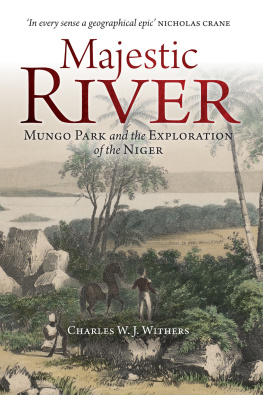
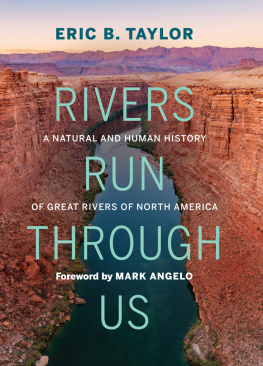
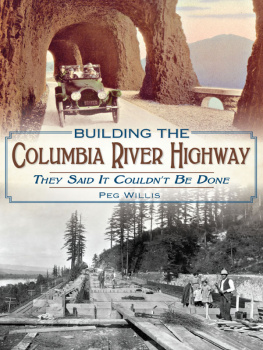
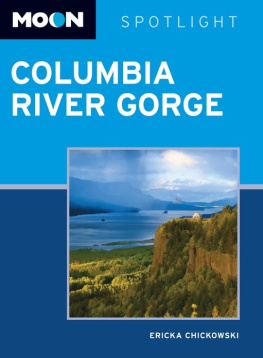

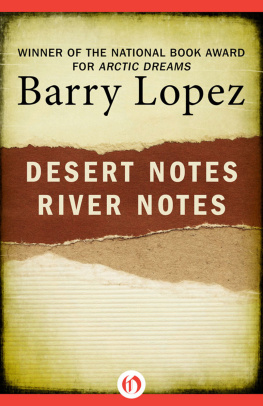



 Contents
Contents

 Preface to the Revised Edition
Preface to the Revised Edition